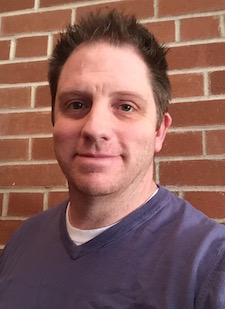This post is part of a blog series on Pomomusings, discussing pastoral identity. To read about the series, as well as get a full schedule of participants, click here.

Pastor as Community Leader
When I was in seminary I attended a General Assembly of the Presbyterian Church (USA), and one of the biggest concerns I heard was that we were no longer relevant. That no one listens to us, that we were no longer part of the public discourse. We were no longer a voice or leader in the community. To be honest, I had never seen a Presbyterian pastor be a voice or leader in the community, at least they didn’t get on the news and talk about issues related to the community. Those honors were reserved for the louder, more extreme voices on the right and left.
My first call was to a resort town in Oregon, we used to joke that it was the most unchurched county in the most unchurched state. No one cared what the church had to say about anything. What happened next changed my ideas about the role of pastor as community leader.
I was searching around twitter, using some advice from a well-known Christian blogger, when I ran across a tweet about “Ignite Bendâ€. Because I was new to the community and interested in getting to know people I followed the URL to an event page. I thought it was some Christian youth thing, but found out it was a free community event that was requesting people to give 5 minute presentations about something they were passionate about. Liking microphones and sharing my passion it was a perfect fit. I submitted a talk entitled, “You May Have Heard It Said, But…†It was accepted and I was one of the ten speakers at Ignite Bend 1. That night, in a community space surrounded by people I didn’t know, most of whom didn’t go to church, many of whom didn’t want anything to do with church, I gave a five minute presentation about changing the perceptions of Christians in the public square, suggesting that we weren’t all like Fred Phelps or Pat Robertson, and that some of us were open to having conversations, not to convert people but to learn from people. That event sparked several relationships that expanded my role as pastor to a part of the community that I would never have had access to in the church.
I then moved to a small, rural, Midwestern community. I started doing the same things I did in Oregon. I sought out opportunities to meet people in the community, I attended community meetings, community events, I asked questions, I followed up, I took people to lunch, had coffee with people. I started doing the things that other parents do. I realized that with unlimited information at our fingertips the community is not going to come to my office to include me, but when I go out into the community I am another welcome voice in the conversation.
In both my calls I have found that people seek out information from different perspectives from people with different expertise and I am increasingly being asked about my thoughts on issues from “the church’s†point of view. I generally say I can only speak for myself and try to focus on the ideas of loving God with all our hearts, souls, minds, and strengths and loving our neighbor as ourselves. I was asked to provide a weekly column for the local newspaper, a column I intentionally write from the perspective of a dad, not a pastor. The increasing presence of a pastor at the table continues to help me shape my identity as pastor and models the idea that our faith should impact all that we do.
I have been blessed with a congregation that allows me to spend my time out in the community, a congregation that still gets much needed visits and leadership as another part of my pastoral identity. I have found the role of community leader to be a vital aspect to my own identity as pastor as well as helping to understand more fully the context to which I have been called.
Being a community leader helps us as pastors to be relevant, maybe not on a national level, but on a person-to-person level, which is where true transformation begins.
Greg Bolt is the pastor at First Presbyterian Church in Nebraska City, NE. He is a father of two and is the weaker half of a Presbyterian pastor couple. He and his wife Heidi blog at Reflections of a Pastor Couple. He is an avid West Virginia University sports fan and is willing to talk about most things with anybody.